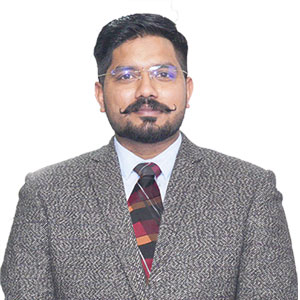How are Indian Students Approaching Defence Exams and what needs to be Changed?
 The onset of the COVIDâ€19 pandemic signalled the postponing of varied centre and state government entrance examinations. It severely affected the aspiring students preparing for such examinations. While some are being reâ€scheduled, numerous examinations are put on hold or even dropped. Nonetheless, the defence exams continue to be scheduled on time. The National Defence Academy (NDA) is a dream place for thousands of students. Students seek different career opportunities like NDA, IAS, Banking etc after completing their higher education. These career alternatives attract the youth as they offer multiple amenities, a challenging life, and other relevant facilities. Indian youths have always admired the brave lifestyle of the armed forces and citizens respect this profession from most parts of the country.
The onset of the COVIDâ€19 pandemic signalled the postponing of varied centre and state government entrance examinations. It severely affected the aspiring students preparing for such examinations. While some are being reâ€scheduled, numerous examinations are put on hold or even dropped. Nonetheless, the defence exams continue to be scheduled on time. The National Defence Academy (NDA) is a dream place for thousands of students. Students seek different career opportunities like NDA, IAS, Banking etc after completing their higher education. These career alternatives attract the youth as they offer multiple amenities, a challenging life, and other relevant facilities. Indian youths have always admired the brave lifestyle of the armed forces and citizens respect this profession from most parts of the country.
The Structure of Defence Exams
There are three professional uniformed services under the pristine Indian Armed Forces†Indian Army, Indian Air Force, and Indian Navy. They are supported by varied inter-service institutions and paramilitary organizations. The armed forces fall under the umbrella of the administration of Government of India’s Ministry of Defence (MoD) and its Supreme Commander has been the President of India.
Some tough exams to get into the armed forces
National Defence Academy (NDA)
The National Defence Academy (NDA) is one of the most inâ€demand and prestigious career options students opt for after completing their 12th. NDA’s exam pattern is conducted by the UPSC consisting of both Services Selection Board (SSB) Interview and written exam. Furthermore, the SSB interview has 2 stages. Picture Perception and Description Test (PP&DT) and Officer Intelligence Rating (OIR) tests are included in Stage 1 while Group Testing Officer Tasks, Conference and Psychology Tests are included in Stage 2. The written examination involves 2 tests†English and General Knowledge (GAT) and Mathematics.
Air Force Common Admission Test (AFCAT)
AFCAT is the most appropriate examination to prepare for students who are planning to step into the world of Indian Air Force. The exam is held twice a year and is conducted by the Indian Air Force. The 2 hours exam is inclusive of different sections. However, engineering graduates applying for the technical branch in the IAF are required to appear for the Engineering Knowledge Test (EKT). Alongside the AFCAT written test, they have to pass EKT that runs for 45 minutes.
Combined Defence Services (CDS)
The CDS examination is conducted by the UPSC twice a year for recruiting candidates into the Indian Military Academy, Indian Naval Academy, Indian Air Force Academy, and Officers’ Training Academy. While the exam for Officers' Training Academy comprises 2 sections, the written exam for Indian Military, Air Force Academy, and Indian Navy include 3 sections each.
Military Nursing Services (MNS)
This exam offers an exclusive opportunity for women willing to work as military nurses in the Indian Army. MNS exam divided into 3 stages comprises a written test, interview, and medical examination.
It is needless to mention how the aboveâ€mentioned examinations are tough to crack. Lakhs of students appear in these exams after studying for prolonged hours, practising a set of varied questions, and revising the full syllabus over and again. But unfortunately, most of them fail to crack these exams. The reason behind this is the lack of a proper study plan, preparation, and strategy to attempt the question papers. With inappropriate guidance, awareness, seriousness, and doses of confusion regarding which path to follow, students fill up the examination forms. Consequently, the percentage of success is minimal.
The people residing in rural areas are monetarily weak and are not much aware of a career like defence. Therefore, hunting talents from such places are significant as well to upgrade and modernize the defence arena in India
What needs to be changed?
Examination Results Transparency
The SSP interview scores and rankings are always kept confidential that needs to be changed. The interview is based on personality and not on academics and knowledge. Therefore, the Defence Institute of Psychological Research must offer guidelines and provide individual character reports to candidates who are unable to crack the personality test. It ensures that candidates are aware of where they lack and can improve their performance next time.
Flexible Selection Process
It is disappointing when candidates are medically fit, have qualified in the written rounds, but are not selected in the end even when more number of eligible candidates are required in defence. This kind of selection procedure frustrates dedicated candidates damaging their morale and temperament. Therefore, a change in the structure of exams and making the whole selection procedure flexible is unparalleled.
Modernize the defence arena
In the present scenario, more technicians, technical equipment, and establishments should be reformed in defence. Industries specific to defence can likewise be formed. Furthermore, the defence should be promoted to Sainik Schools, Rashtriya Indian Military College (RIMC), and other rural areas. The people residing in rural areas are monetarily weak and are not much aware of a career like defence. Therefore, hunting talents from such places are significant as well to upgrade and modernize the defence arena in India.

